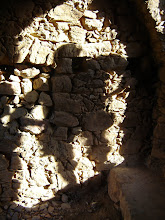In the early 1980s, after
several years of study and the first skirmishes with the world of employment, my
life moved on and was no longer dominated by the idle preoccupations of youth. After
university in the North East of England, I spent my mid-20s in assorted places south of
Manchester, in Stoke, Bristol and Salisbury.
In 1984
however, I swapped life in Britain for
one in the south of the Netherlands. As a Geographer and student of languages,
I took to it like a duck to water. But if following the fortunes of Northern
cricket had been difficult enough Down South, before the age of internet, keeping
in touch from the heart of Europe was going to be a tough ask. Thankfully, Test Match Special (previously on BBC Radio 3), providing ball-by-ball commentary of
every test match involving England, transferred to Radio 4 on Long Wave, whose
signal could be picked up to adequate effect in Limburg, the southernmost
province of the Netherlands. Unlike the UK, at the time cable television was
widespread in the Netherlands and with large numbers of British servicemen
living in the south of Limburg (on account of NATO military bases nearby), the
local network offered a British Forces Broadcasting Service channel in its
package. During the summer months, it would show Test Match highlights every
day. And when BBC 1 and 2 were included on the cable network in the 1990s, it
was possible to watch cricket all day. Life was beginning to normalise again.
Nevertheless, experiencing cricket in the flesh again was proving a tad more
difficult.
When my son was growing up in the 1990s, he joined HCC Heerlen, the local hockey club.
I’d never played the sport myself before, but enthusiastically enrolled for the
mixed recreational sessions for adult beginners held every Monday evening to keep
fit. It soon transpired that the abbreviation HCC stood for Hockey & Cricket
Club. Before I moved to the continent, I had little idea that cricket – amongst
certain circles - enjoyed widespread popularity in the Netherlands. As such it
was one of the few countries on the European continent that practiced the sport
(it’s claimed that Dutch colonists brought it back from the Cape). 90 percent
of clubs today are based 200 kilometres away from Limburg in the heavily
populated west of the country. More often than not these clubs were founded early
in the last century as mixed cricket and hockey associations which catered to
the middle classes as a way of singling them out from the hoi-polloi. 1930s Heerlen,
then a boomtown as a result of the rich reserves of coal that had been found underground, attracted senior personnel to the
mines and when the hockey club was founded the intention had been to establish
cricket as a summer sport. It never materialised, though short-lived efforts were
made in the 1960s to get one off the ground.
On Monday evenings,
when we retired to the clubhouse after a strenuous runaround, I would sometimes
reminisce about cricket with a South African hockey-playing friend, but
otherwise it was a sport very much off-the-radar in this part of the world.
One evening
in March 2003, I had an unexpected call from a local GP in my adopted home town
of Heerlen. He had been smitten by cricket whilst studying Medicine at
Nijmegen and explained his crazy idea of setting up a
cricket team in Heerlen and how he had me lined up as a potential volunteer. I’d
learnt by now to be sceptical of such calls – no sooner did someone throw an
idea up in the air, than it fell back down to earth with a whimper was my
experience in such matters. But he sounded genuine and I was soon helping him
on his - now our - recruitment drive. Once we had enough interested people, we arranged a
knockabout on the hockey field, albeit with a tennis ball and a handful of
would-be exponents of the sport, whose understanding of the game ranged from intimate to
non-existent.
But we
pressed on regardless. My doctor friend took the bold step of entering us in
the Dutch league that season starting in May, with all that entailed: playing facilities, equipment and, most importantly, manpower. In the next
month or so, we cobbled together a few more willing hands who were conversant
with the game: my hockey-playing friend put forward his son who
had grown up watching BBC cricket broadcasts; amongst the local immigrant
community we found a Pakistani, a Sri Lankan and another Brit; the university in Aachen
furnished us with a couple of Indians, a South African and a stray Kiwi. With a few
other stragglers we managed to string together a full complement of 11 players. The local council
gave us a field to play on and with a litlle bit of help from a British army team in
Brunssum a few miles away, we had the gear we needed to get started. By late May we
were up and running and ready to take on the rest of the Netherlands at cricket.
It was then
my world turned upside down.
[to be continued]
See also Part 1 of How I fell out of love with cricket
[to be continued]
See also Part 1 of How I fell out of love with cricket










